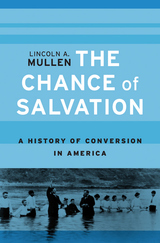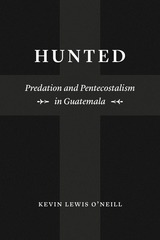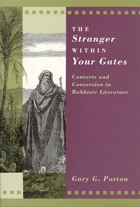
The United States has a long history of religious pluralism, and yet Americans have often thought that people’s faith determines their eternal destinies. The result is that Americans switch religions more often than any other nation. The Chance of Salvation traces the history of the distinctively American idea that religion is a matter of individual choice.
Lincoln Mullen shows how the willingness of Americans to change faiths, recorded in narratives that describe a wide variety of conversion experiences, created a shared assumption that religious identity is a decision. In the nineteenth century, as Americans confronted a growing array of religious options, pressures to convert altered the basis of American religion. Evangelical Protestants emphasized conversion as a personal choice, while Protestant missionaries brought Christianity to Native American nations such as the Cherokee, who adopted Christianity on their own terms. Enslaved and freed African Americans similarly created a distinctive form of Christian conversion based on ideas of divine justice and redemption. Mormons proselytized for a new tradition that stressed individual free will. American Jews largely resisted evangelism while at the same time winning converts to Judaism. Converts to Catholicism chose to opt out of the system of religious choice by turning to the authority of the Church.
By the early twentieth century, religion in the United States was a system of competing options that created an obligation for more and more Americans to choose their own faith. Religion had changed from a family inheritance to a consciously adopted identity.

Hunted is based on more than ten years of fieldwork among these centers and the drug users that populate them. Over time, as Kevin Lewis O’Neill engaged both those in treatment and those who surveilled them, he grew increasingly concerned that he, too, had become a hunter, albeit one snatching up information. This thoughtful, intense book will reframe the arc of redemption we so often associate with drug rehabilitation, painting instead a seemingly endless cycle of hunt, capture, and release.

The Stranger within Your Gates analyzes virtually every reference to converts in the full corpus of rabbinic literature. The intellectual dilemma that converts posed for classical Judaism played itself out in discussions of marriage, religious practice, inheritance of property, and much else. Reviewing the rabbinic literature text by text, Porton exposes the rabbis' frequently ambivalent and ambiguous views.
The Stranger within Your Gates is the only examination of conversion in rabbinic literature to draw upon the full scope of contemporary anthropological and sociological studies of conversion. It is also unique in its focus on the opinions of the community into which the convert enters, rather than on the testimony of the convert. By approaching data with new methods, Porton heightens our understanding of conversion and the nature of the People of Israel in rabbinic literature.
READERS
Browse our collection.
PUBLISHERS
See BiblioVault's publisher services.
STUDENT SERVICES
Files for college accessibility offices.
UChicago Accessibility Resources
home | accessibility | search | about | contact us
BiblioVault ® 2001 - 2024
The University of Chicago Press









